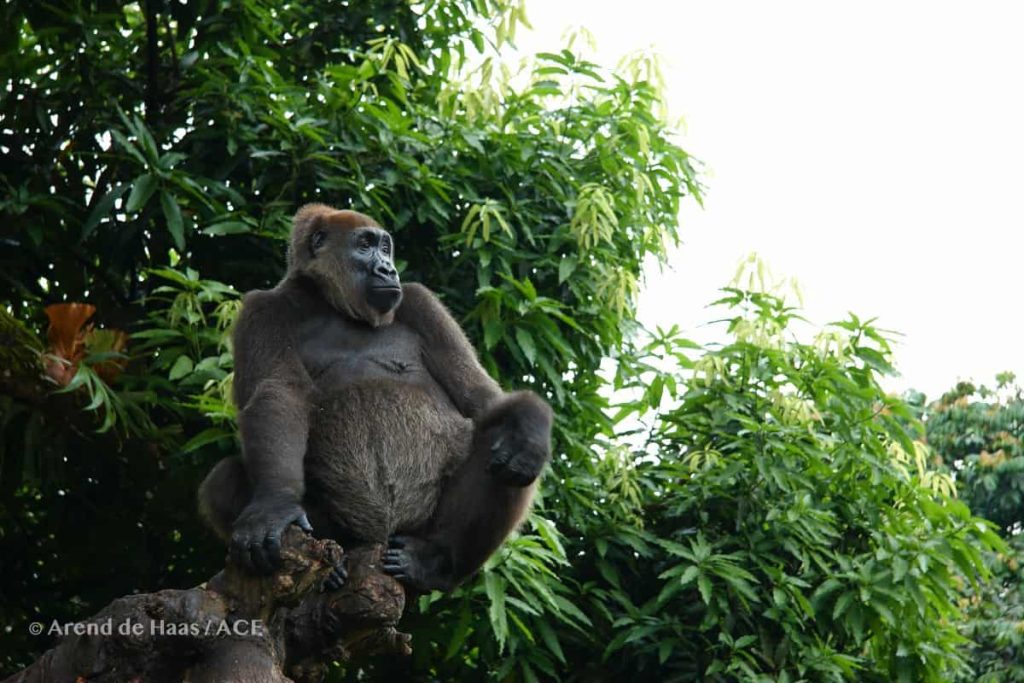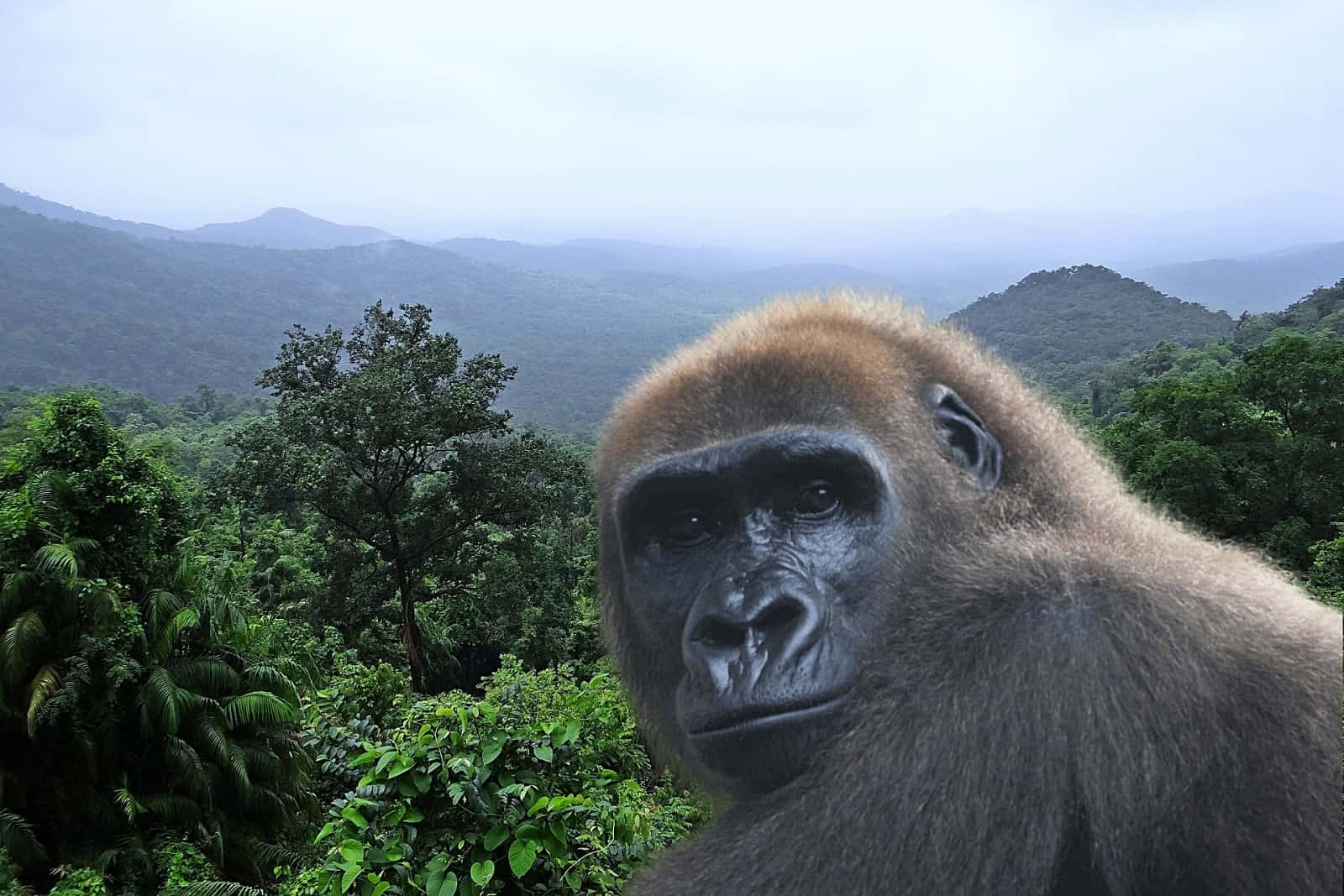Why should we protect Cross River gorillas?
Beyond their intrinsic value, Cross River gorillas are essential to the survival of rainforests. They play a crucial role in maintaining the biodiversity of their forest habitats by dispersing the seeds of the trees they eat and creating gaps in the forest through foraging and migration. These gaps allow light to penetrate the forest, enabling light-loving plants to grow.
The loss of these ecological services provided by large-bodied seed dispersers can have significant impacts on the forests. Without gorillas, the population dynamics of plants in the forest would be strongly impacted due to dispersal limitations. In the long term, this could lead to a shift in plant community structure and composition, as well as a reduction in tree diversity.

Saving the rainforest without protecting gorillas would result in a slow death of the forest.
In addition to their role in maintaining forest biodiversity, gorillas are also an umbrella species. By protecting them, we are protecting other species and their habitat, thereby conserving biodiversity on a much larger scale.
Lastly, gorillas contribute significantly to natural carbon capture by trees, helping to fight climate change. The world’s forests act as a natural trap for carbon emissions, absorbing approximately 4.8 billion tonnes of carbon dioxide each year.
Protecting Cross River gorillas, therefore, has a far-reaching impact beyond their individual conservation, making them a key species to conserve for the health of our planet.

